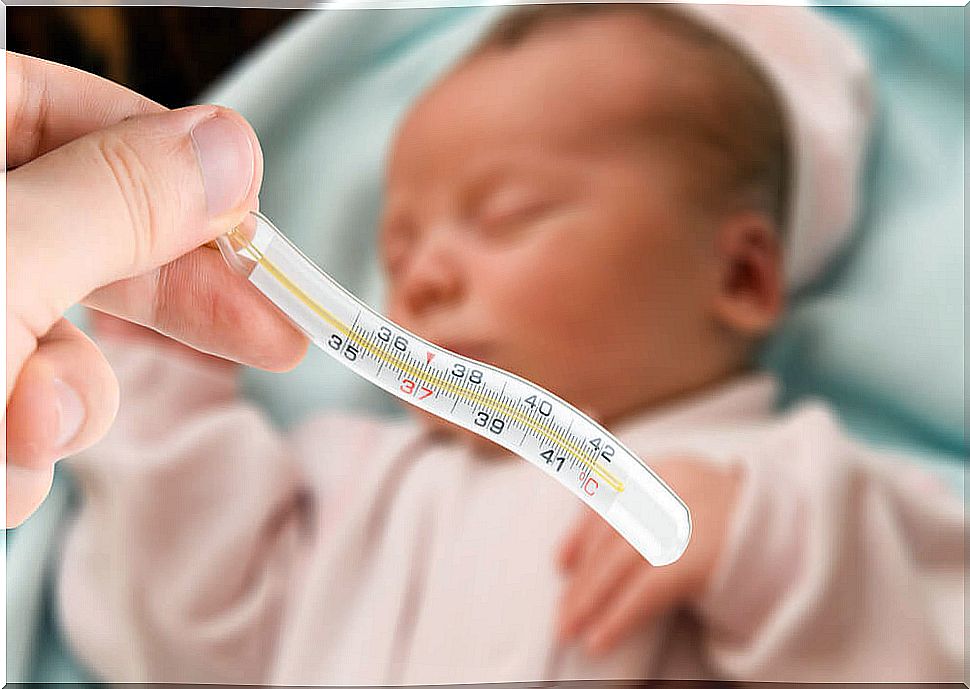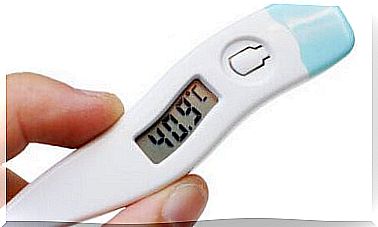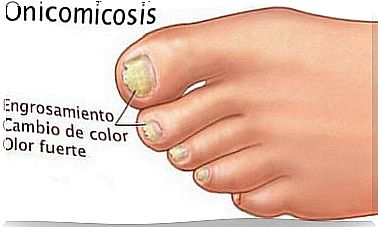Pharyngitis In Babies: What To Do?
Pharyngitis in babies is a fairly common pathology, as in children. It consists of inflammation of the lining of the throat, often caused by a viral infection. However, it can also be caused by bacteria.
Detecting any disease in a baby is complicated, since they cannot communicate like adults. Many times the suspicion is given because the child is more irritable or does not eat well.
In addition, we must add the complexity that babies require special care and treatments. Therefore, in this article we explain everything you need to know about pharyngitis in babies and what to do about it.
What is pharyngitis in babies?
As we have mentioned, pharyngitis in the inflammation of the mucosa that lines the throat. Often, this pathology tends to be overdiagnosed or confused with other health problems; for example, a common cold.
In fact, on some occasions incorrect treatments are prescribed for the management of its symptoms. There is an inappropriate tendency to suggest the use of antibiotics in the face of irritation of the pharynx ; however, this is wrong because it is not always caused by bacteria.
First of all, it should be noted that not all respiratory infections with a sore throat correspond to pharyngitis. In the same way, almost 70% of pharyngitis in babies are caused by viruses, so the use of antibiotics would not help to cure the pathology.
This disease often appears during the fall or winter; Furthermore, as it is usually caused by an infectious pathogen, it is common for infections to occur, especially between siblings.

Causes of pharyngitis in babies
Among the viral forms, we find numerous viruses that can cause pharyngitis in babies. In general, the clinic does not usually show what the exact cause is. Also, this type of pharyngitis usually resolves on its own in about 5 days or less.
Some of the viruses that can cause it are adenovirus, enterovirus, or herpes simplex virus. The clinic of these has some characteristic features. For example, in the case of adenovirus, there is usually an inflammation of the preauricular node.
In addition, it can be accompanied by conjunctivitis. Enterovirus pharyngitis in babies, meanwhile, usually predominate in summer or early autumn. The herpes virus can cause ulcerated blisters on the palate or gums.
Bacterial pharyngitis in babies
Importantly, although rare, pharyngitis in babies can be caused by bacteria. In particular, the most widespread is by a bacterium called Streptococcus pyogenes. Most cases occur in early spring.
This infection is relevant because it can produce a much more extensive clinic than the pharyngitis itself. For example, it sometimes affects the skin or kidneys. In addition, in this case antibiotics are indicated.
What are the symptoms of pharyngitis in babies?
Pharyngitis in babies, like the rest of pathologies, are difficult for parents to detect. Babies cannot express themselves and all the signs they show are quite nonspecific. Infants often have trouble resting or have insomnia.
They are also irritable and tend to refuse food. There are those who perceive that the sound of their crying is somewhat different and, in addition, they may have a fever. Also, as we have already pointed out, some babies have swollen glands near the neck.

What can be done about it?
Given the suspicion of this infection in babies, it is best to go to the doctor. Although 80% of cases correspond to a self-limited viral infection, it is essential that a professional explore it and rule out other causes.
When the cause of pharyngitis is confirmed to be a virus, no treatment is usually necessary. However, to relieve symptoms, non-steroidal anti-inflammatory drugs such as ibuprofen can be used. This will reduce pain.
It is also important that the baby is hydrated and gets enough rest. In the event that the fever is very high, the use of paracetamol is recommended.
When the cause of pharyngitis is Streptococcus pyogenes , it is necessary to prescribe antibiotics. Oral penicillin is commonly used. It helps to reduce the clinic and the risk of contagion.
Consulting the pediatrician is important
Although this infection is common in babies and most cases are mild, it is best to consult your pediatrician to find out how to manage it. Not all causes are bacterial, so it is not correct to use antibiotics whenever present.









